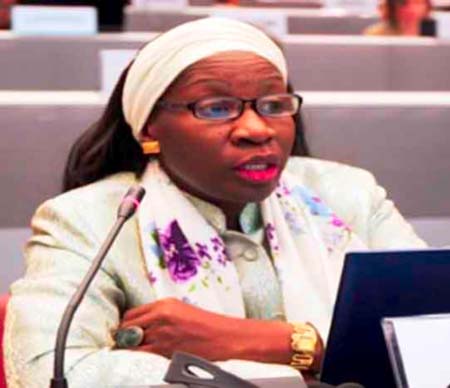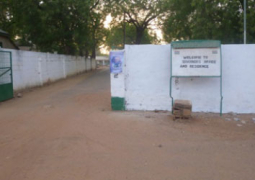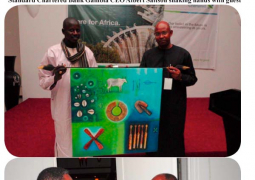
The
Gambia government through the National Environment Agency (NEA) has conducted a
daylong stakeholders meeting aimed at reducing greenhouse gas emission through
technology transfer in the refrigeration and air conditioning sector in The
Gambia.
The
forum was organised in collaboration with the United Nations Industrial
Development Organisation (UNIDO) and the Gambia Technical Training Institute
(GTTI) with the support of Global Environment Facilities (GEF).
The
training was part of a project to reduce greenhouse gas emission associated
with refrigeration and air conditioning facilities in The Gambia by using
natural refrigerants.
Speaking
on the occasion, NEA Executive Director Ndye Bakurine said the project focuses
on synergies between the goals set by United Nations Framework Convention on
Climate Change (UNFCCC) and the Montreal Protocol on substance that deplete the
ozone layer.
The
forum was to take stock of the achievements and challenges, and to develop a
roadmap for successful combination of technical assistance on policy and
regulation, technology transfer, capacity building, awareness raising and
financial support.
Madam
Bakurine said despite efforts to phase out hydrocarbon fluorocarbon (HCFC),
there is an overall lack policy and regulatory incentives to support the industrial
refrigeration sector in moving towards greater energy efficiency and away from
HCFC by 2030.
She
pointed out that this is due to lack of measures that would encourage
refrigeration facilities to consider low-carbon, low- GWP alternative in refrigeration.
It
is also a result of lack of policy in place to support safe use and maintenance
of equipment using these refrigerants because other refrigerants, including
hydrocarbons and C02, are new to The Gambia.
“Consequently,
instilling better practices and knowledge through this project will serve as
the foundation for growing demand in The Gambia in the future and prepares the
industry for the best technologies in this market,” she said.
She
explained that under the policy regulatory support component of the project, a
thorough policy gap analysis had been carried out with the involvement of an
international expert and local executing agencies.
The
analysis provided recommendations based on international best practices in line
with the Gambian context.



